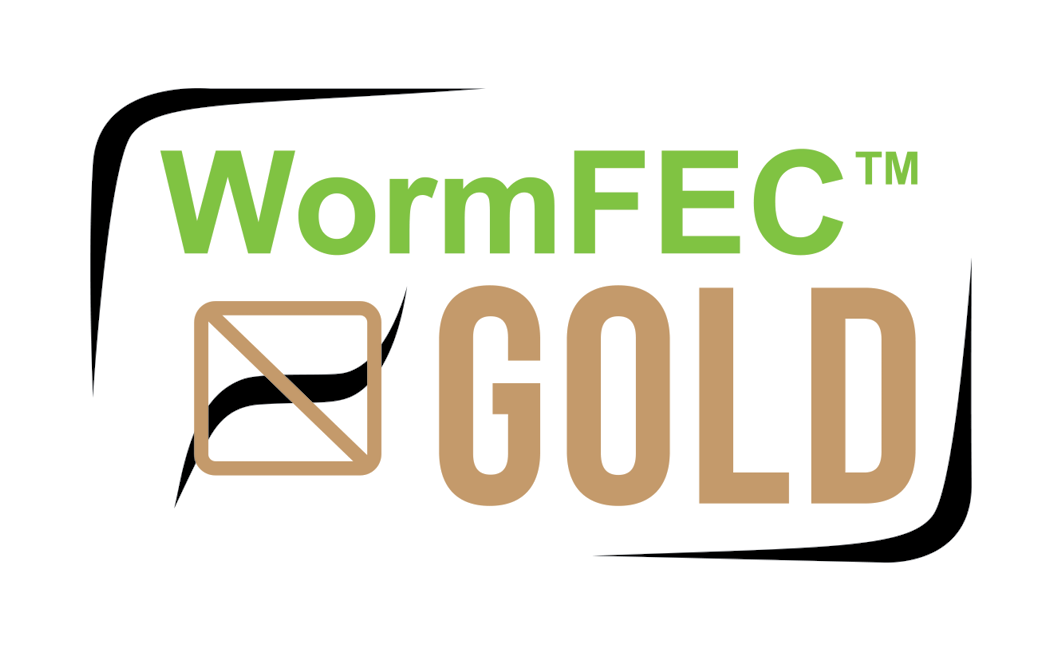Have a question about breeding for production and worm resistance?
Will I lose production if I breed for worm resistance?
No. WormFEC Gold flocks deliver an average of $6 (600 cents) in New Zealand Maternal Worth score (NZMW – a combined index for maternal sheep including Growth, Survival, Adult Size and Fertility) over the national average for Dual Purpose flocks. Under the right conditions and management practices, you can expect production increases due to reduced parasite burden on your flock.
We’ll be honest. In the early days of worm resistance breeding, some programmes did result in production compromises. But that was 30+ years ago. Generations of improvement under the strict WormFEC Gold certification programme now ensure worm resistant genetics with no impact on production. In most cases, you can expect production gains.
Why can’t I just wait for a new drench active?
Because a new drench active is unlikely to arrive anytime soon – according to this Farmer’s Weekly Spotlight story and Dr Dave Leathwick and Beef + Lamb NZ.
There’s a bigger strategic decision to make for your farm & flock here too – an endless cycle of new chemical drenches (which may or may not arrive), or targeted breeding now to limit worm burden and avoid drench resistance long into the future?
Can I just use WormFEC Gold genetics to solve my parasite burden or drench resistance issues?
No. Parasite resistant genetics are just one part of the toolkit. We always recommend using a targeted genetic programme alongside good management practices like well-planned grazing rotations, designing for refugia flocks, ensuring good nutrition and quarantines for new stock. The Beef + Lamb NZ Wormwise programme it is a good source of information on best-practice for managing worm burden and drench resistance.
Will parasite resistance in my flock save me money?
Yes. In the words of WormFEC Gold breeder Kate Broadbent “the advantage of not using drench on ewes is a significant time and labour saving. As well as not having to pay for drench it also provides significant refugia, helping avoid drench resistance and its associated production losses.”
What is the WormFEC Gold certification process? How can I trust I am getting the genetics I’m buying?
WormFEC Gold certification is independently verified by Sheep Improvement Ltd. Collectively, members have taken over 65,000 FEC samples, with an average of 300 FEC samples each per year for at least eight years. Our members work closely with Techion, providers of the PhenR and WormFEC service, and with AgResearch which set up WormFEC in 1994 and provides science guidance to the network.
When can I expect to see animal health improvements in my flock?
Embedding genetic resistance to worms and parasites in your flock is a long-term long project. Success will come through incremental gains across generations. You can expect to see improvements in resistance starting in the third year of your programme.
How often should I expect to drench once my flock has genetic worm resistance?
Variable weather conditions, the starting resistance status of your flock/worm population and other variables make this a hard question to answer. With a well-executed breeding programme and good management practices, you can expect to drench significantly less most seasons. One WormFEC Gold breeder, Avalon Genetics, successfully operate a ‘maximum one drench per lifetime’ system (in order to meet Organic certification requirements).
Critically, when you do drench, this overall reduction will make your drench more effective against worm and parasite load.
Why do I need genetics? Can’t I just change my management practices to limit worm burden and avoid drench resistance?
Yes, it’s possible to see significant improvement in animal health and counter drench resistance through management practices alone. Using a targeted breeding programme like WormFEC Gold will support these practices and build further long-term resistance in your flock with no production loss. By combining genetics with best practice, you’ll see better animal health results and manage weather and other spikes in worm-load more easily.
